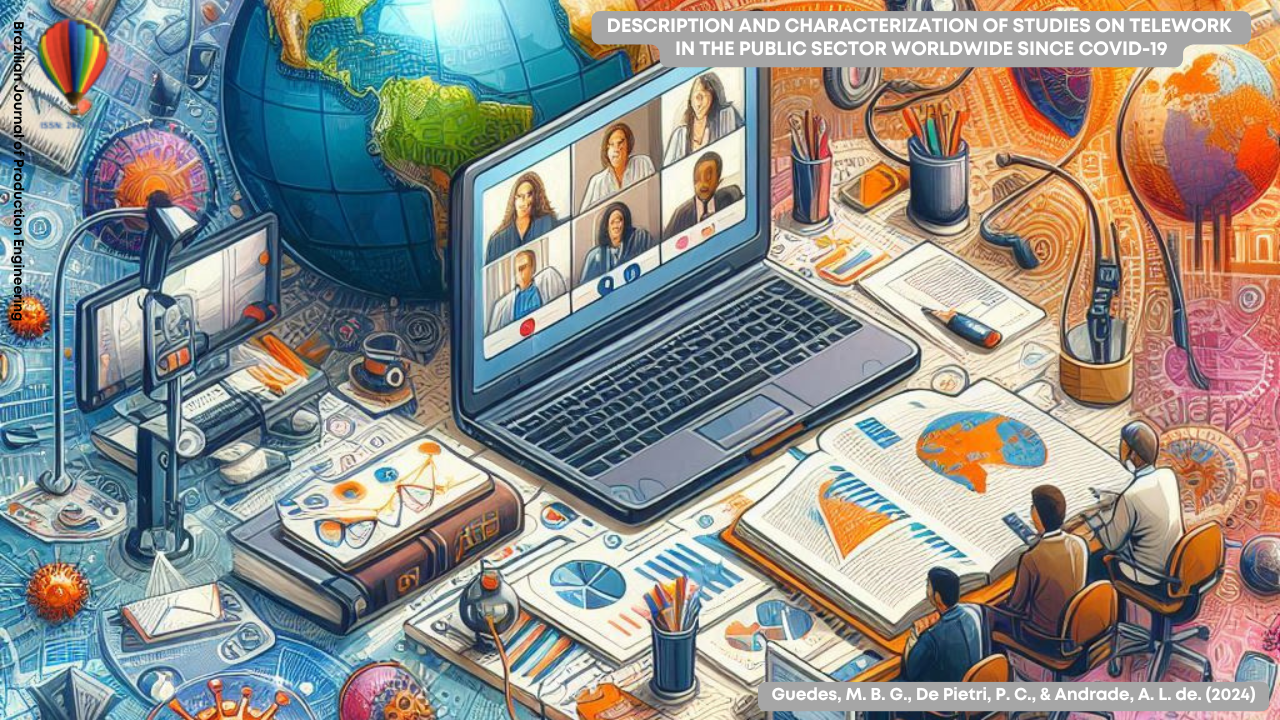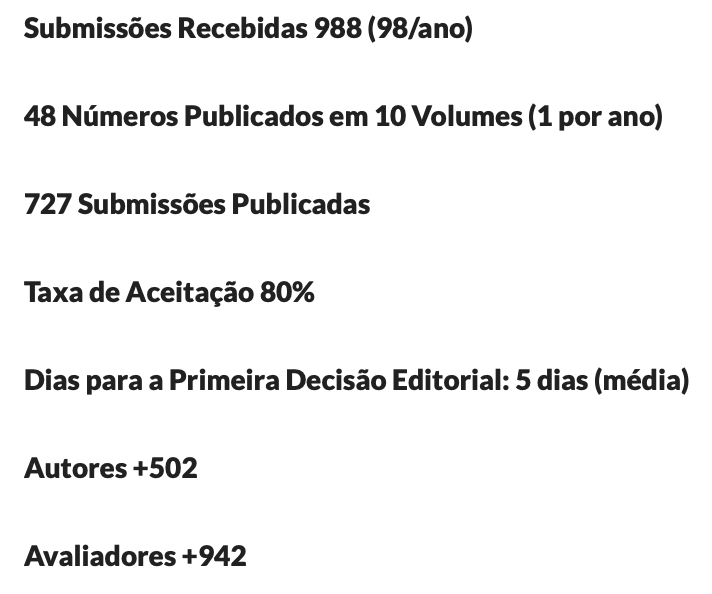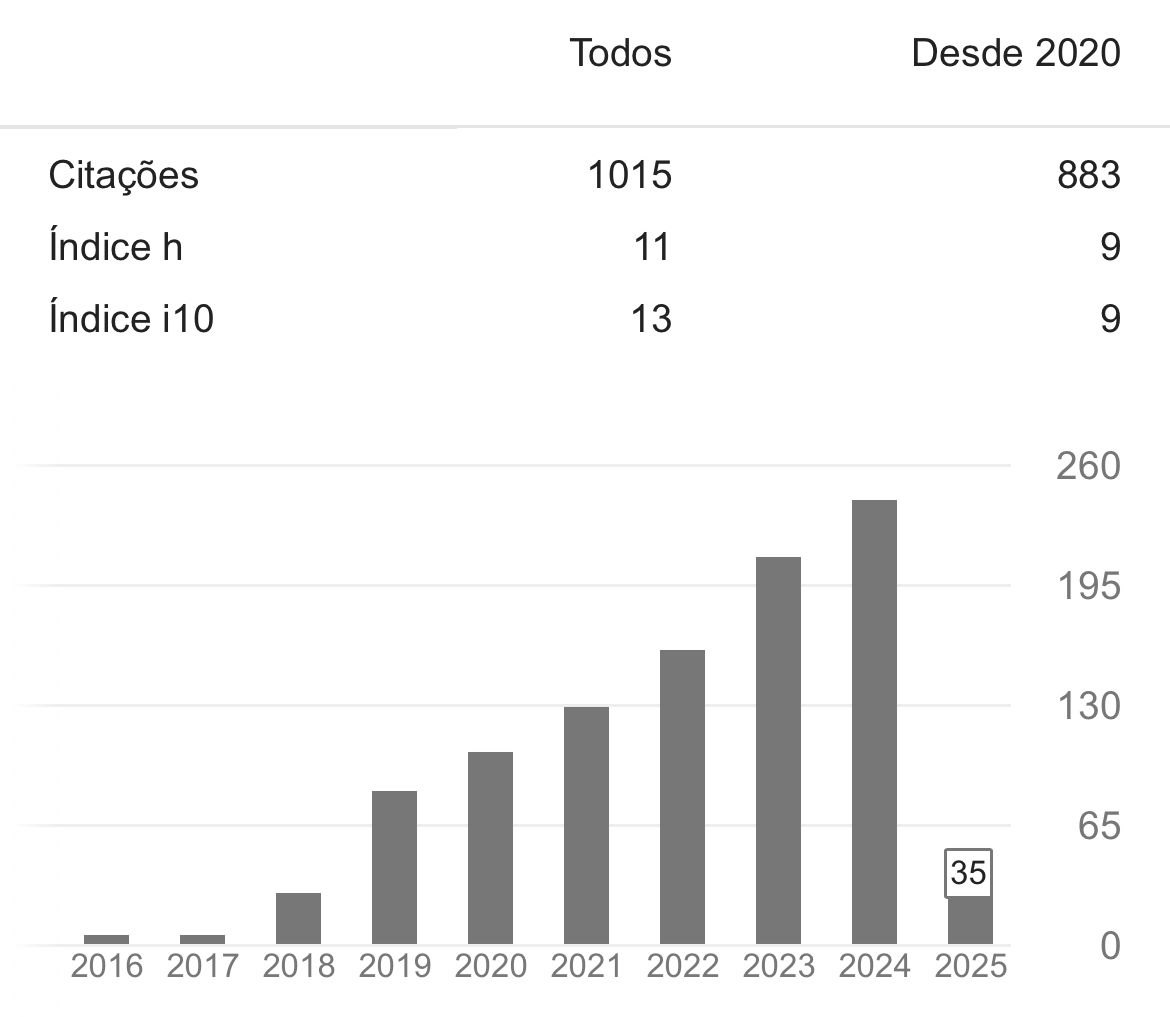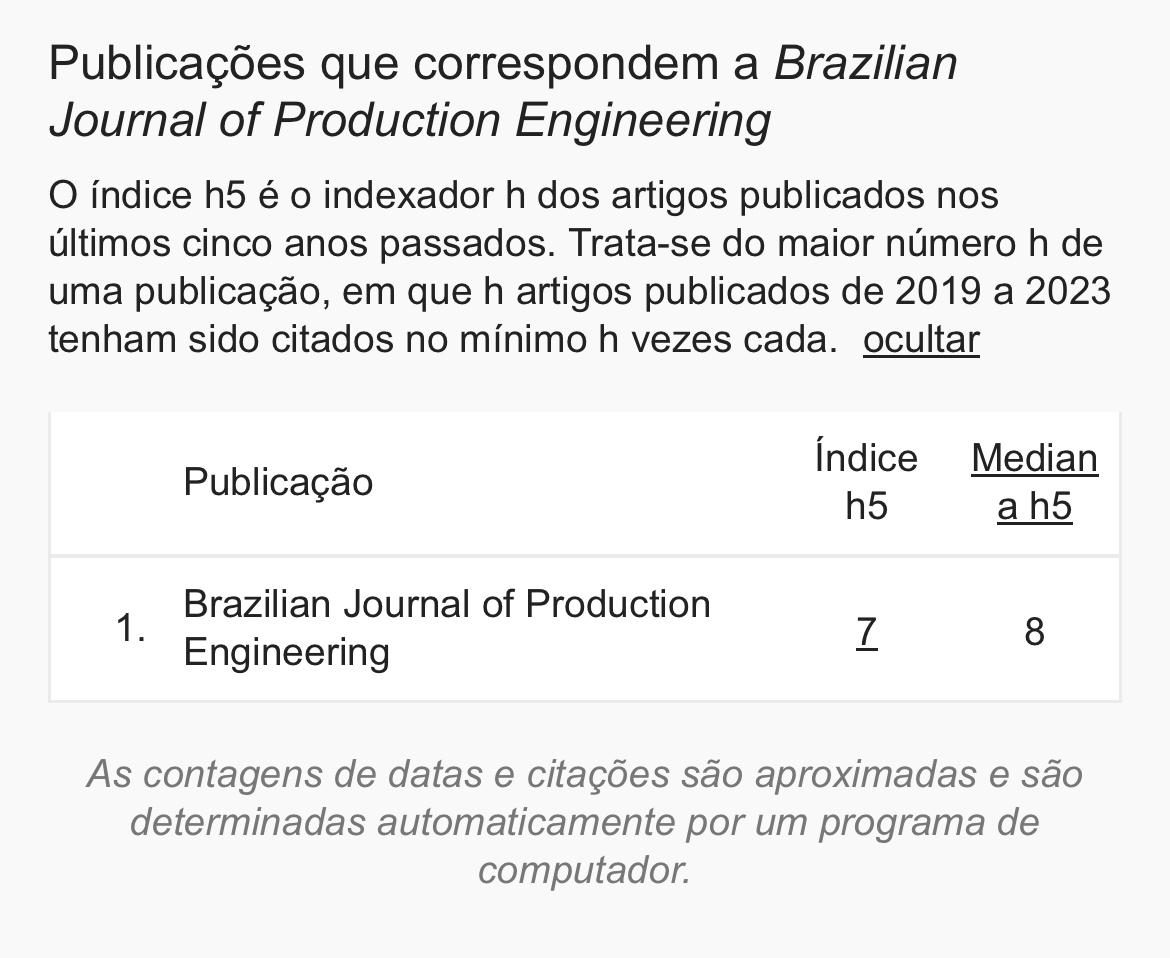Description and characterization of studies on telework in the public sector worldwide since covid-19
DOI:
https://doi.org/10.47456/bjpe.v10i3.45203Keywords:
Covid-19, Telework, Impact, Public sectorAbstract
he Covid-19 pandemic triggered substantial changes in work environments, highlighting telework as a key solution to ensure the continuity of public services. In this context, this article conducted a systematic literature review to analyze the advantages and disadvantages of implementing telework in the public sector worldwide during and after the Covid-19 pandemic. Studies published in the last 5 years (2019 to 2023) were examined to identify patterns and insights on telework in the governmental context. The research highlights the main advantages as improved performance, work-life balance, greater schedule flexibility, and reduced commuting time for public servants. On the other hand, the predominant disadvantages include social isolation, work-life imbalance, and increased working hours. Moreover, significant gaps in the literature on the implementation of telework in the public sector in the post-Covid-19 scenario are revealed. Nevertheless, this study contributes to understanding the effects of telework in the public sector and provides crucial insights for public managers to formulate organizational policies and practices. It also suggests, as future research, in-depth investigations into the potential interference of telework with the work-life balance of public servants.
Downloads
References
Ali, S., Alam, B. F., Noreen, S., Anwar, M., Qazi, S. H., & Hussain, T. (2021). Motivation and job satisfaction among medical and dental college faculty in Pakistan amid the COVID-19 outbreak. Work, 69(2), 359-366. https://doi.org/10.3233/WOR-213483 DOI: https://doi.org/10.3233/WOR-213483
Boulet, M. & Parent-Lamarche, A. (2023). Workers’ well-being and job performance in the context of COVID-19: a sector-specific approach. Evidence-Based HRM, 11(3), 377-394. https://doi.org/10.1108/EBHRM-07-2021-0139 DOI: https://doi.org/10.1108/EBHRM-07-2021-0139
Brandão, S. & Ramos, M. (2023). Teleworking in the context of the Covid-19 pandemic: advantages, disadvantages and influencing factors – the workers’ perspective. Revista Brasileira de Gestao de Negocios, 25(2), 253-268. https://doi.org/10.7819/rbgn.v25i2.4221 DOI: https://doi.org/10.7819/rbgn.v25i2.4221
Carayon, P. & Smith, M. J. (2000). Work organization and ergonomics. In Applied Ergonomics (Vol. 31). https://doi.org/10.1016/S0003-6870(00)00040-5 DOI: https://doi.org/10.1016/S0003-6870(00)00040-5
Dávila Morán, R. C. (2023). Influence of Remote Work on the Work Stress of Workers in the Context of the COVID-19 Pandemic: A Systematic Review. In Sustainability (Switzerland). 15(16). Multidisciplinary Digital Publishing Institute (MDPI). https://doi.org/10.3390/su151612489 DOI: https://doi.org/10.3390/su151612489
De Macêdo, T. A. M., Cabral, E. L. D. S., Silva Castro, W. R., De Souza Junior, C. C., Da Costa Junior, J. F., Pedrosa, F. M., Da Silva, A. B., De Medeiros, V. R. F., De Souza, R. P., Cabral, M. A. L., & Másculo, F. S. (2020). Ergonomics and telework: A systematic review. In Work. 66(4), 777-788). IOS Press BV. https://doi.org/10.3233/WOR-203224 DOI: https://doi.org/10.3233/WOR-203224
Diffenbaugh, N. S., Field, C. B., Appel, E. A., et al. (2020). Os bloqueios do COVID-19: uma janela para o Sistema Terrestre. Nat Rev Earth Environ 1, 470-481. https://doi.org/10.1038/s43017-020-0079-1 DOI: https://doi.org/10.1038/s43017-020-0079-1
Gama, A. L. S., Santos, M. A. O., Soares, F. I. L., Bandeira, F. de L., Costa, D. P., & Da Silva, P. M. M. (2023). Teletrabalho e a gestão de pessoas no serviço público: uma revisão bibliométrica dos estudos científicos durante a pandemia do Covid-19. Cuadernos de Educación y Desarrollo, 15(7), 5718–5738. https://doi.org/10.55905/cuadv15n7-006 DOI: https://doi.org/10.55905/cuadv15n7-006
Ibrayev, S. (2022). Remote Work as an Innovative Approach in the Public Administration System of the Republic of Kazakhstan. In The Innovation Journal: The Public Sector Innovation Journal (Vol. 27, Issue 3).
Jain, T., Currie, G., & Aston, L. (2022). COVID and working from home: Long-term impacts and psycho-social determinants. Transportation Research Part A: Policy and Practice, 156, 52-68. https://doi.org/10.1016/j.tra.2021.12.007 DOI: https://doi.org/10.1016/j.tra.2021.12.007
Leite, A. L., Schneider, W. A., & Lemos, D. (2019). Teletrabalho: uma revisão integrativa da literatura internacional. https://www.researchgate.net/publication/337144508 DOI: https://doi.org/10.19094/contextus.v17i3.42743
Lopes Júnior, E. P. & Daniel, A. N. A. (2022). Workers Performance: What has Changed with the Covid-19 Crisis? International Journal of Public Administration. https://doi.org/10.1080/01900692.2022.2154362 DOI: https://doi.org/10.1080/01900692.2022.2154362
Matias, A. B. & Mallagoli, I. S. S. (2022). Home working at a public university due to the COVID-19 pandemic: challenges and opportunities. Revista Brasileira de Medicina Do Trabalho, 20(1), 161-165. https://doi.org/10.47626/1679-4435-2022-837 DOI: https://doi.org/10.47626/1679-4435-2022-837
Mendes-Da-Silva, W. (2019). Contribuições e Limitações de Revisões Narrativas e Revisões Sistemáticas na Área de Negócios. In Revista de Administracao Contemporânea. 23(2). ANPAD - Associação Nacional de Pós-Graduação e Pesquisa em Administração. https://doi.org/10.1590/1982-7849rac2019190094 DOI: https://doi.org/10.1590/1982-7849rac2019190094
Müller, L. S., Reiners, S., Becker, J., & Hertel, G. (2023). Long-term effects of COVID-19 on work routines and organizational culture – A case study within higher education’s administration. Journal of Business Research, 163. https://doi.org/10.1016/j.jbusres.2023.113927 DOI: https://doi.org/10.1016/j.jbusres.2023.113927
Ortiz-Lozano, J. M., Martínez-Morán, P. C., & de Nicolás, V. L. (2022). Teleworking in the Public Administration: An Analysis Based on Spanish Civil Servants’ Perspectives During the Pandemic. SAGE Open, 12(1). https://doi.org/10.1177/21582440221079843 DOI: https://doi.org/10.1177/21582440221079843
Parent-Lamarche, A., & Boulet, M. (2021a). Employee well-being in the COVID-19 pandemic: The moderating role of teleworking during the first lockdown in the province of Quebec, Canada. Work, 70(3), 763-775. https://doi.org/10.3233/WOR-205311 DOI: https://doi.org/10.3233/WOR-205311
Parent-Lamarche, A. & Boulet, M. (2021b). Workers’ stress during the first lockdown consequences on job performance analyzed with a mediation model. Journal of Occupational and Environmental Medicine, 63(6), 469-475. https://doi.org/10.1097/JOM.0000000000002172 DOI: https://doi.org/10.1097/JOM.0000000000002172
Rahman Fatmi, M., Mehadil Orvin, M., & Elizabeth Thirkell, C. (2022). The future of telecommuting post COVID-19 pandemic. Transportation Research Interdisciplinary Perspectives, 16. https://doi.org/10.1016/j.trip.2022.100685 DOI: https://doi.org/10.1016/j.trip.2022.100685
Slack, N., Sharma, S., Aiyub, A., & Singh, G. (2021). Working from Home in the Australian Public Sector Before, During, and Post-COVID-19. In Global Encyclopedia of Public Administration, Public Policy, and Governance (pp. 1-6). Springer International Publishing. https://doi.org/10.1007/978-3-319-31816-5_4356-1 DOI: https://doi.org/10.1007/978-3-319-31816-5_4356-1
Toleikienè, R., Rybnikova, I., Juknevicienè, V. (2020). Whether and how does the crisis-induced siation change e-learship in the public sector? Evidence from Lithuanian public administration. 149-166. DOI: https://doi.org/10.24193/tras.SI2020.9
Vinueza-Cabezas, A., Osejo-Taco, G., Unda-López, A., Paz, C., & Hidalgo-Andrade, P. (2022). A Comparison of Working Conditions and Workers’ Perceptions among On-Site, Telework, and Hybrid Workers in Ecuador during the COVID-19 Pandemic. International Journal of Environmental Research and Public Health, 19(21). https://doi.org/10.3390/ijerph192114337 DOI: https://doi.org/10.3390/ijerph192114337
Wesemann, A. (2023). Does my boss’s boss matter? Examining the effects of teleworking and manager quality on employee job satisfaction during the COVID-19 pandemic. International Journal of Public Sector Management. https://doi.org/10.1108/IJPSM-12-2022-0290 DOI: https://doi.org/10.1108/IJPSM-12-2022-0290
Williamson, S., Colley, L., & Foley, M. (2022). Public servants working from home: Exploring managers’ changing allowance decisions in a COVID-19 context. Economic and Labour Relations Review, 33(1), 37-55. https://doi.org/10.1177/10353046211055526 DOI: https://doi.org/10.1177/10353046211055526
Williamson, S., Colley, L., Huybers, T., & Tani, M. (2023). Public servants working from home during the pandemic: Who gained and who lost? Australian Journal of Public Administration. https://doi.org/10.1111/1467-8500.12580 DOI: https://doi.org/10.1111/1467-8500.12580
Williamson, S., Pearce, A., Connor, J., Weeratunga, V., & Dickinson, H. (2022). The future of working from home in the public sector: What does the evidence tell us? Australian Journal of Public Administration, 81(4), 640-648. https://doi.org/10.1111/1467-8500.12556 DOI: https://doi.org/10.1111/1467-8500.12556

Downloads
Published
How to Cite
Issue
Section
License
Copyright (c) 2024 Brazilian Journal of Production Engineering

This work is licensed under a Creative Commons Attribution 4.0 International License.

















































































